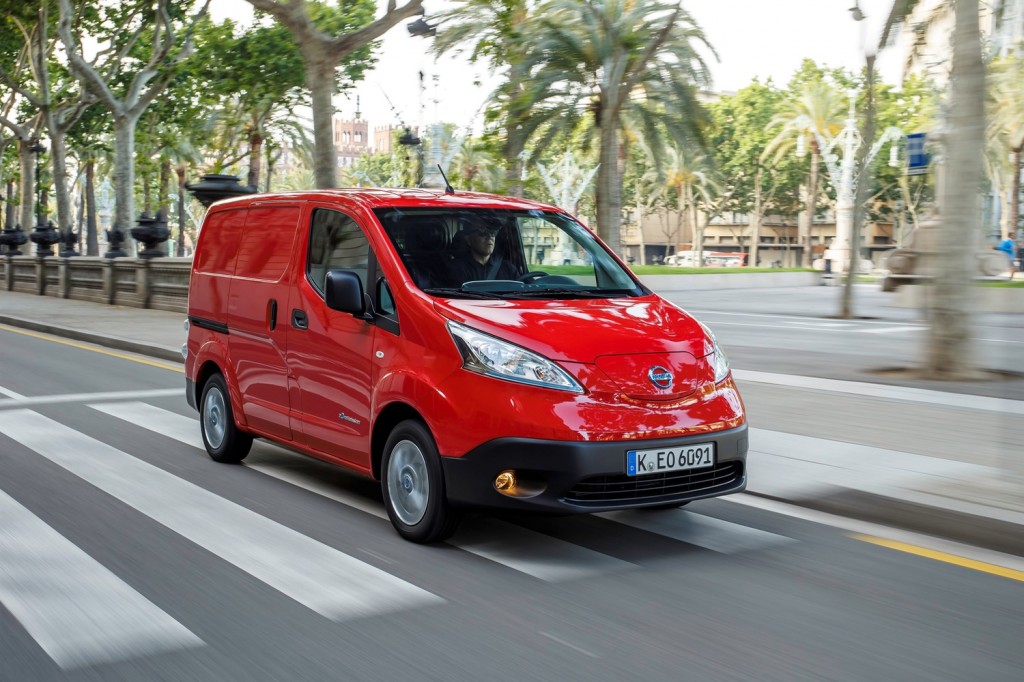The Nissan Leaf propulsion system in a compact-car van platform has proven an appealing combination for Europe. Nissan has produced 42,000 of the electric vans, and it sold 10,000 in Europe in 2019 alone.
Now a new version, dubbed e-NV200 XL Voltia, is launching in Europe but, like the standard e-NV200, it's unlikely to reach the United States.
Compared to the existing e-NV200, the e-NV200 XL Voltia model gets a higher roof, increasing cargo space by 90% over the standard e-NV200, according to Nissan.
Internal-combustion vans are typically offered in high-roof and low-roof configurations, among other body styles, so the XL Voltia helps Nissan achieve parity with those models. It could be a better fit for customers hauling cumbersome cargo.
The powertrain remains unchanged, so the XL Voltia still uses a 40-kilowatt-hour battery pack from the Leaf. Nissan did not quote a range figure, but the standard e-NV200 is rated at 174 miles in the very generous European NEDC testing cycle. The XL's taller, less-aerodynamic roof may hinder range.
Nissan hasn't seen fit to offer the larger, 60-kilowatt-hour battery pack from the Leaf Plus in the e-NV200. That pack allows the Leaf to exceed 200 miles of range on the stricter U.S. testing cycle.
The e-NV200 launched in Europe in 2014, and Green Car Reports test drove it around that time. The van launched with the 24-kWh battery pack used in the Leaf at the time; it didn't get the current 40-kwh pack until 2017.

Nissan e-NV200
The automaker also makes passenger-carrying versions of both the e-NV200 and the internal-combustion NV200 it's based on, which have been pitched to urban taxi services.
The gasoline NV200 was declared New York City's "Taxi of Tomorrow" in 2011. The program aimed to introduce a new standard taxi to replace the Ford Crown Victoria, but was eventually dropped. New York City now uses a mixed fleet including some NV200s, as well as Toyota Camry and Highlander hybrids.
New York City tested a handful of Leaf taxis in 2013, and issued a roadmap for fleet electrification in 2014, but has not made significant progress since then.
An e-NV200 entered regular taxi service in London last year, becoming the first of the city's iconic Black Cabs with an electric powertrain.
